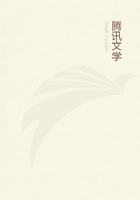
第33章 FATHERLY CARE.(1)
From my own Apartment,June 23.
Having lately turned my thoughts upon the consideration of the behaviour of parents to children in the great affair of marriage,Itook much delight in turning over a bundle of letters which a gentleman's steward in the country had sent me some time ago.This parcel is a collection of letters written by the children of the family to which he belongs to their father,and contain all the little passages of their lives,and the new ideas they received as the years advanced.There is in them an account of their diversions as well as their exercises;and what I thought very remarkable is,that two sons of the family,who now make considerable figures in the world,gave omens of that sort of character which they now bear in the first rudiments of thought which they show in their letters.
Were one to point out a method of education,one could not,methinks,frame one more pleasing or improving than this;where the children get a habit of communicating their thoughts and inclinations to their best friend with so much freedom,that he can form schemes for their future life and conduct from an observation of their tempers;and by that means be early enough in choosing their way of life,to make them forward in some art or science at an age when others have not determined what profession to follow.As to the persons concerned in this packet I am speaking of,they have given great proofs of the force of this conduct of their father in the effect it has upon their lives and manners.The older,who is a scholar,showed from his infancy a propensity to polite studies,and has made a suitable progress in literature;but his learning is so well woven into his mind,that from the impressions of it,he seems rather to have contracted a habit of life than manner of discourse.
To his books he seems to owe a good economy in his affairs,and a complacency in his manners,though in others that way of education has commonly a quite different effect.The epistles of the other son are full of accounts of what he thought most remarkable in his reading.He sends his father for news the last noble story he had read.I observe he is particularly touched with the conduct of Codrus,who plotted his own death,because the oracle had said,if he were not killed,the enemy should prevail over his country.Many other incidents in his little letters give omens of a soul capable of generous undertakings;and what makes it the more particular is,that this gentleman had,in the present war,the honour and happiness of doing an action for which only it was worth coming into the world.Their father is the most intimate friend they have;and they always consult him rather than any other,when any error has happened in their conduct through youth and inadvertency.The behaviour of this gentleman to his sons has made his life pass away with the pleasures of a second youth;for as the vexations which men receive from their children hasten the approach of age,and double the force of years;so the comforts which they reap from them,are balm to all other sorrows,and disappoint the injuries of time.
Parents of children repeat their lives in their offspring;and their concern for them is so near,that they feel all their sufferings and enjoyments as much as if they regarded their own proper persons.